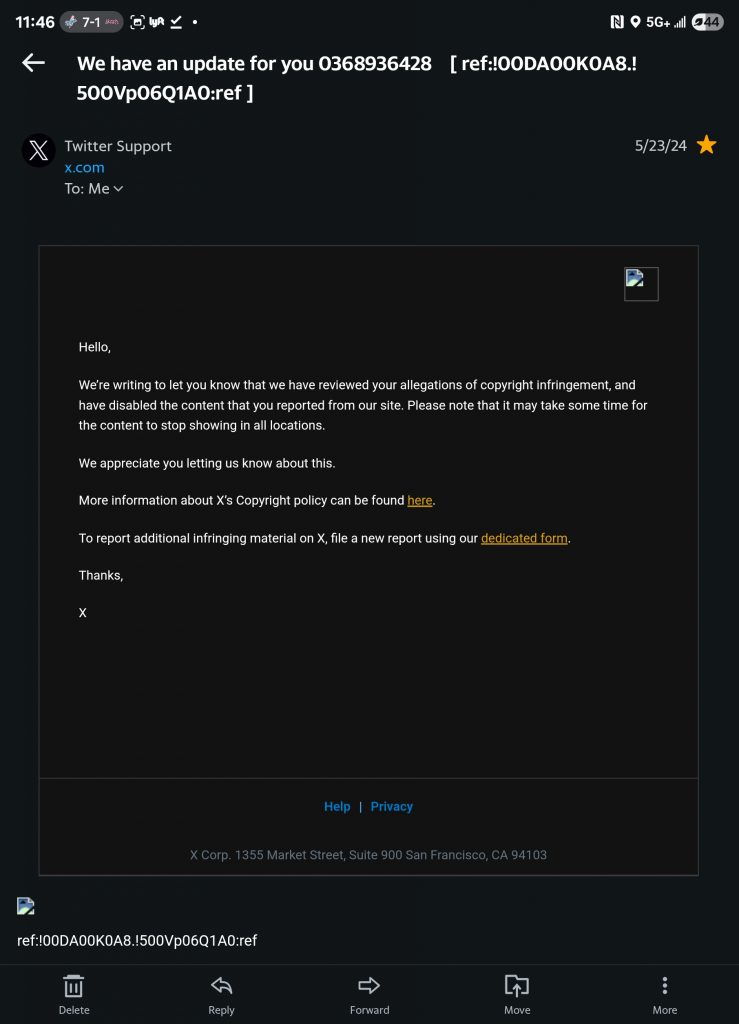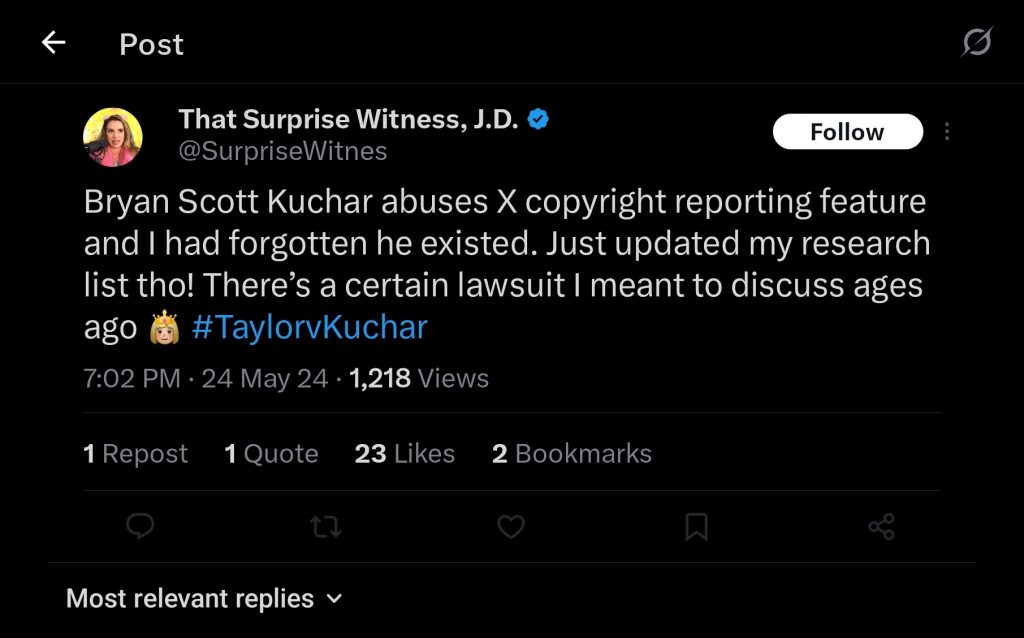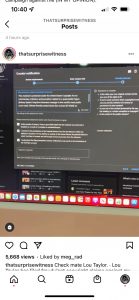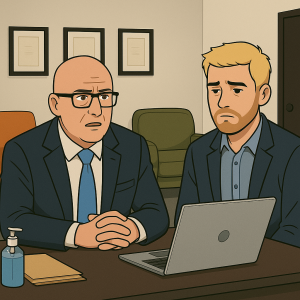May 24, 2024 – Brittany Courville Retaliates After DMCA Removal, Claims “Copyright Abuse”
On May 24, 2024, Brittany Courville tweeted an accusation that I had “abused” the copyright reporting feature on X. She coupled this with a sarcastic reference to a settled legal matter — the 2020 Taylor v. Kuchar case — and implied she was reigniting her interest in targeting me.
The post appears to be retaliatory, following a valid copyright takedown I submitted to X months earlier. That removal was in response to her tweet from August 14, 2023, where she posted a copyrighted image of me without permission.
May 24, 2024 Tweet:
“Bryan Scott Kuchar abuses X copyright reporting feature and I had forgotten he existed. Just updated my research list tho! There’s a certain lawsuit I meant to discuss ages ago 👑 #TaylorvKuchar”
This was a reference to my legitimate DMCA complaint against Brittany’s earlier tweet:
August 14, 2023 Tweet (Now Missing Image):
The copyrighted image was removed after X reviewed and approved my report. Below is the confirmation email from X Support confirming removal based on copyright infringement:

Brittany’s tweet falsely reframes this proper use of copyright protections as “abuse,” and then attempts to reignite attention around Taylor v. Kuchar — a case that was publicly resolved in 2020 with no finding of wrongdoing.
This fits a broader pattern of retaliatory, misleading public statements meant to defame and provoke. The facts — and the outcome of the takedown — are documented here to clarify the truth for the record.
Relevant Legal Frameworks:
- 17 U.S. Code § 512 – DMCA
My report was submitted under the Digital Millennium Copyright Act and confirmed by X as valid. The platform’s action affirms that Brittany used copyrighted material without permission. - Restatement (Second) of Torts § 652E – False Light
Publicly misrepresenting a lawful copyright enforcement action as abuse can constitute false light when done to discredit or retaliate. - N.J.S.A. 2C:33-4.1 – Cyber-Harassment
Repeated targeting and public defamation online with malicious or intimidating intent may qualify under New Jersey’s cyber-harassment law.
Screenshot of May 24, 2024 Tweet (in case removed):

Screenshots and records are included solely for documentation and timeline preservation purposes.





